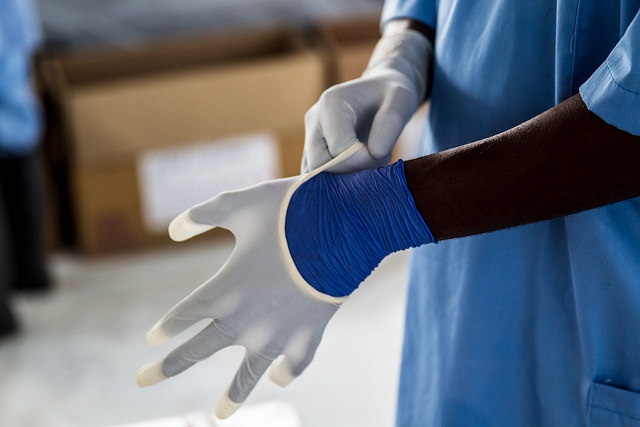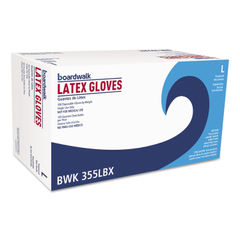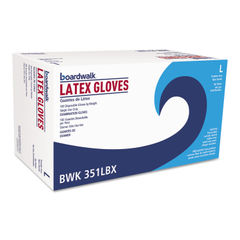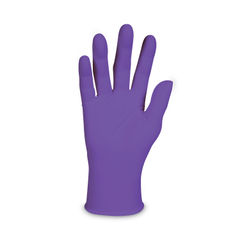Tips for Choosing the Best Disposable Gloves for Medical Use
Medical professionals at all levels of education and experience use disposable gloves to keep themselves and their patients safe. Having the right kind of gloves for patient care is important for hospitals, clinics, labs, physician offices, and mobile health units across the country. They are used every day by doctors, nurses, surgeons, lab techs, dentists, pharmacists, emergency responders and others who work in the field of healthcare.

So, if you work in the medical profession and are in need of gloves for your office, you've definitely stumbled upon the right buying guide.
Topics Covered in this Buying Guide
- Characteristics of Medical Disposable Gloves
- Best Materials for Medical Gloves
- Accommodating Latex Allergies
- Powdered and Unpowdered Medical Gloves
- Recommended Gloves for Medical Use
1. Characteristics of Medical Disposable Gloves
Disposable gloves in the medical profession are usually categorized as either exam gloves or surgical gloves. Healthcare workers and caregivers normally wear exam gloves to protect themselves from contamination when in direct contact with a patient. More advanced surgical gloves are used by surgeons and operating room nurses to allow for greater precision, sensitivity, and sizing.
It is important that both exam gloves and surgical gloves be specialized to provide protection from disease and bodily fluids. They should also be comfortable to the touch, as to not make the professional or patient unnecessarily uncomfortable.
2. Best Materials for Medical Gloves
Exam gloves are made with latex, vinyl, and nitrile. Latex gloves have been the standard in medical offices for many years, and different brands and styles of them have various features. For example, some latex gloves have powder, while others do not, and some are thicker and longer than others.
Latex gloves are used in high-risk situations that involve infectious material. They're elastic, strong, and biodegradable too. For providing mid-range barrier protection, latex is comfortable, flexible, and fits well. However, some professionals and patients are allergic to it.
Made from polyvinyl chloride, vinyl is a low-cost option that is soft, comfortable, and latex-free. These gloves can be sufficient to wear for low-risk tasks and touching non-hazardous materials. Vinyl gloves are may also be worn for less tactile work, but keep in mind that they are usually less durable than latex gloves.
Nitrile is a great general purpose material that is commonly used for exams, especially on patients with latex allergies. Nitrile is a very durable and tear-resistant material that makes it good to use with sharp objects and instruments. You can wear nitrile gloves for longer periods of time, and these gloves have a long shelf life. Ultimately, they provide high barrier protection and are able to resist chemicals and punctures in ways that latex and vinyl simply can't.

3. Accommodating Latex Allergies
One common misconception about latex allergies is that this is an allergy that you're born with. However, medical professionals are at a very high risk of developing this allergy over time due to their frequent exposure to latex gloves.
The common symptoms involved in this type of allergy include redness and irritation of the skin. But in rare cases, respiratory problems and shock have been reported. Many medical offices are moving towards non-latex gloves to reduce this risk for healthcare workers. It is also important to ask patients if they have a latex allergy before performing any type of medical exam.
4. Powdered and Unpowdered Medical Gloves
Medical professionals use both powered and unpowdered gloves in their line of work. Powdered gloves became popular in the industry because they are easier to take on and off and help to lubricate the hands. The powder in powdered gloves is usually cornstarch, which does not commonly cause any irritation.
However, the powder can be problematic if the powder finds its way into open cuts and wounds on the skin. The powder can prevent natural healing of skin tissue, which is why some healthcare workers choose to wear unpowdered gloves with inner coatings instead while examining certain patients.
5. Recommended Gloves for Medical Use
The decision of whether to buy latex, vinyl, or nitrile gloves largely comes down to how much protection you need. Each material has its pros and cons in the medical industry, so we recommend having some of each in your medical supply closet. You just never know who your next patient will be or what procedure will be required on any given day.
We have some great exam glove options for all three materials, and gloves with and without powder too. It's also worth mentioning that buying in bulk can save your medical office a substantial amount of money and ensure that you're ready for anything. With the right gloves nearby and ready for use, high-quality patient care has never been safer or more convenient.
- Latex exam gloves: Curad Latex Exam Gloves
- Powdered latex gloves : Boardwalk General Purpose Powdered Latex Gloves
- Powder-free latex gloves: Boardwalk Powder-Free Latex Exam Gloves
- Vinyl exam gloves: Medline Aloetouch® Ultra IC Vinyl Exam Gloves
- Nitrile exam gloves: Kimberly-Clark Professional* PURPLE NITRILE* Exam Gloves












